David Archuleta Embraces the Sweet Life
David Archuleta gets candid about coming out, rethinking religion, and celebrating his freedom by playing WorldPride.

“There is a lot happening.” David Archuleta is reading through the lineup of artists set to perform at the two-day WorldPride Music Festival in Washington, D.C. His eyes light up as he peruses the list, certain names producing a silent gasp of excitement, though I can’t tell whose from my side of our video call.
“My friend Ty Sunderland is DJing,” he says, still reading. Sporting a white tank and well-groomed stubble, much as he does in the sweetly queer video for hit “Crème Brulée,” the teen idol-turned-pop prince seems to be searching for one name, in particular. “Isn’t Trisha Paytas performing as well?”
He isn’t wrong. Paytas will be at the Music Festival’s Global Dance Party, while, at a different venue, Archuleta will co-headline the WorldPride Post-Parade Concert on Saturday, June 7, with superstar Cynthia Erivo.
Attending his first WorldPride, the performer sounds just as excited as anyone else anticipating the celebration. “Okay, so Trisha is Friday night,” he clarifies. “Tinashe, Paris Hilton, Marina, Rita Ora, Galantis, Jennifer Lopez, Zedd. Oh, my girl, Kaleena [Zanders]! I wish I was there! I love Kaleena.”
A quick check of his schedule confirms that Archuleta will be in Dallas, Texas that night, headlining MetroBall, which benefits the Greg Dollgener Memorial AIDS Fund. It’s one stop on what amounts to the singer’s unofficial summer tour of LGBTQ+ and Pride-themed events, a concerted effort on his part to give back to a community that has long supported him.
After years of struggling to reconcile his sexuality with his Mormon religion, while in the stark public light since he rose to fame on American Idol, Archuleta, at the age of 30, came out publicly as queer. Over the course of our conversation, though he never curses or raises his voice, he sounds quite passionate about finally accepting his identity, and shirking off the chains of religion-based homophobia.
He expresses his commitment to uplifting the queer community, and continuing the fight for LGBTQ rights — especially the rights of trans people, who, as he points out, have always been the trailblazers. “Their fight was what helped people like me who just are queer to live freely and without being afraid,” he says.
“So to see it now going backwards, it’s like, ‘Oh, my gosh.’ I’m hoping just by being a part of events like WorldPride, and other local Prides that I’m getting invited to, just to say, ‘You know what? People like y’all who’ve been yourselves for a long time now, thank you for making it easier for me to come out four years ago.'”
WORLDPRIDE GUIDE: Happy almost WorldPride! Personally, I’ve never experienced a WorldPride. Have you been to a WorldPride or performed at one?
DAVID ARCHULETA: No, this will be my first one and I’m very excited. I’m intrigued to see what the theme of a WorldPride is in comparison to local Prides in different cities that they have throughout the U.S. I’ve been to Madrid Pride as well. That was my first international, outside of the U.S. Pride, which was very fun as well.
WPG: The theme of this WorldPride is “Fabric of Freedom.” I don’t know if you’ve thought about what that might mean in general, or to you. What do you take away from it?
ARCHULETA: “Fabric of Freedom.” It sounds like something that is knit together, like different fabrics that come together to create something bigger and whole. And I think it’s also beautiful to think that it’s like we’re covering for each other. Because in a time where people are trying to make people afraid of you, fearmongering to try to put blame onto the queer community for whatever problems are going on and to be afraid of something, you have to work together and be with each other more than ever to support each other in protecting each other’s right to just live and to be free to be ourselves.
I see a lot of people who are like, “Well, what rights are being taken away?” Well, you see a lot of threats going around, like reversing same-sex marriage, or trans people just being able to be trans, even. It started with this whole bathroom thing, but you see how the fearmongering turns into more. It’s like, “Because we have a problem with this with you, it means we need to reverse the life you’re even living because of the threat that you are.”
I mean, the fact that I saw some of the governmental [policies] in the country where they’re trying to take out the “T” because they’re saying, “Oh, well, gay people don’t really want to be associated with trans people.” And it’s like you look back in the history, and in the umbrella of queer people, trans people were fighting for the rights. Because they had to be the boldest, they couldn’t just blend in as easily as your sexual attraction towards the same sex. It was a physical identity that they also had to fight for and couldn’t hide and blend in as easily, so they had to. And they fought.
WPG: I read that you have been living in Nashville and I think I hear it. I say that as somebody from Louisville, Kentucky.
ARCHULETA: Oh, my gosh. Yeah. Well, I moved away from Nashville officially this year. Because in Nashville, [I knew people] who feel like they need to make it known that they don’t agree with you. I’m like, “Well, what do you not agree with me?” They’re like, “Well, with same-sex, gay relationships.” And I’m like, “Okay, thanks for letting me know.” I used to be there and I used to believe that, and I had to fight to change my own mind about gay relationships and being okay with it. So I got it. I had conversations with them, but I also saw how some people don’t want to change their mind. They kind of look at it as, “We’re going to disagree on this and I wanna win this fight! You’re going to try and tempt me from what I think God actually thinks of you and this whole thing, and you’re not going to get me. This is wrong.”
And I’m just kind of like, “You know what? I’m so tired.” I was just at a point where I’m like, “I’m exhausted,” just because I had to convince myself to continue living, because continuing living was going to mean I was going to live authentically and be honest with myself that I was queer, or I was going to give up my life for the sake of God.
And that wore me out so much that I was like, “I don’t want to argue with you. I don’t want to offend you. If you see me suddenly dating a guy, I just want to go and mind my own business and live my life. And just by me holding hands with someone, you get offended by it?” And to have to worry about that? I don’t want to worry about that. So I moved to L.A.
But having the day-to-day little conversations with people who just wanted to fight, I don’t have the energy for that right now. I’m like, “I just accepted myself. I don’t want to argue with you about why it was okay for me to accept myself and why you think I shouldn’t accept myself.” I had the conversation with the people that mattered. The other people, I’m like, I don’t… ugh.
WPG: I understand. Also, I get press releases from the Tennessee State Attorney General about all of their cases against gender-affirming care, against drag queens. Tennessee is going really hard right now. You’re playing a lot of Pride events. The weekend that you’re in D.C., you’re also in Dallas, and you’re going to do Salt Lake City, Utah Pride, which I imagine must be really special for you. What is that going to mean for you?
ARCHULETA: I can’t wait. I’ve never been to Pride in Utah. That’s where I grew up from age six to age 17, or even up to 20, 21. So I spent basically all of my developmental years, especially sexually, for the most part, going through puberty and learning what it’s like to have an attraction for someone. I mean, my queer identity, I became aware of it in Utah, but also what I was taught was, “You’re not supposed to… That’s not the way it’s supposed to happen.”
So to go back and see how much progress has been made, even in the last ten years — there’s been so much progress in Utah. It’s unbelievable to see that Salt Lake has become one of the largest percentages of queer people living in a city is really great. And to see that they are trying to combat some of the negativity towards the queer community, because I think one thing that’s beautiful about Utahns is even though they’re extremely religious and very highly influenced by the Mormon religion, Church of Jesus Christ of Latter-Day Saints — they’re like, “We’re not Mormon anymore,” but I mean, they basically are — even though they’re a high-demand religion and there’s been a lot of difficulty with supporting the queer community, I think there’s also a lot more empathy.
If Mormons feel like they’re allowed to listen to queer people and their stories or have a family member going through it, there is empathy. I think once you take the muffs off their ears–
WPG: The Mormon earmuffs?
ARCHULETA: The second that comes off, you’re conditioned to be empathetic as well. It’s kind of a two-edged sword. You’re conditioned to follow the prophet, the church leader, with your life. And if the prophet says, “Gay marriage is not okay,” it doesn’t matter how nice gay people are, you’ve got to defend what the prophet says. But if the prophet says, “Be understanding, compassionate people,” then Mormons are like, “Okay, as long as the prophet says.” They are very empathetic.
I’ve seen how with my own coming out, my Mormon friends were a lot more empathetic than a lot of the people I knew in Nashville who were religious. And it was nice to see that, while they didn’t understand what I was going through if they were straight Mormons, they were very compassionate and wanted to try and understand, even though it was very scary for them. Some of them didn’t make the full step over to listen to what the queer experience is really like. They’re like, “That’s too scary. I’ve got to be told it’s okay for me to go there before I get there.” But you still see that they’re empathetic.
I think that’s what’s allowed it to be safer and probably why Salt Lake has become more of a queer city. Because a lot of people who leave Mormonism, they’re empathetic. It may not be everyone’s experience. But I feel like going back to Utah and knowing that a lot of Mormons go to Utah Pride and Salt Lake Pride, I hope people realize that they’re making progress. And I can’t wait to go.
Last time I lived in Utah, I was a closeted queer boy who was trying to “fix” his queerness because I was told it could be fixed and I believed it. So I was like, “Okay, this is just my trial of faith and I will become straight.”
So now to come back and be like, “Hey, I tried that and it didn’t work, and it wasn’t the right thing.” The right thing is to embrace who you are and love yourself, and it’s okay to be queer and it’s a wonderful thing to be queer.
WPG: On the subject of coming into your identity, as somebody who’s been in the public eye since you were a kid and was already dealing with these things, what is it like to have a mass of people who don’t know you coming to conclusions about you and what your orientation might be before you have come to any conclusion about it?
ARCHULETA: I guess a lot of people, especially in the queer community, saw in me a lot of the struggles that they had before coming out. So it made a lot of people relate to watching me, especially in the queer community. Before I came out, I was like, “Why do all these gay guys, why are they so into me? I don’t get it.” Because I didn’t get it. I didn’t talk to a lot of gay people. I wasn’t doing anything secret on the side or anything, so I really was unaware. And if anything, I almost thought, “They see the evil in me.”
So I was like, “Why are they trying to bring out the evil in me?” I tried to really stay away from that. I was like, “I acknowledge that there may be something there, but I’m working on it. I’m doing my best to be clean before God,” which I thought meant to be straight, and which I was clearly misinformed about.
So, yeah, I didn’t understand it before and now I do. Now I’ve been around a lot of people where they’re like, “Oh, my gosh, before I came out, I saw myself in you and I didn’t know why.” So it’s funny. I see people, I’m like, “Oh, I can relate to their pre-coming out experience.” So yeah, it’s very odd. I mean, looking back, putting myself back as a 16-year-old, going through it and having all the gay guys fanboy over me and saying that I was gay, I was like, “What are you talking about?” So it’s funny now, that here I am at Pride performing.
WPG: Okay, let’s talk about some music. Actually, I was listening to “Crème Brulée” and “Freedom” on repeat. I’m going to start with “Freedom” because I’m a huge George Michael fan, and I thought your new rendition was really touching. What does singing that song mean to you right now?
ARCHULETA: Oh, my goodness. Oh, and that’s so sweet to hear, gosh. Yeah, I’m like a later-in-life fan of George Michael, because I think also, before coming out, I saw myself in him, like the struggle, and I was like, “I don’t like that.” I didn’t like that. So I was like, “Stay away from that.” But after I came out, I was like, “Oh, my gosh!” His music just spoke to me so much, because I had finally accepted myself. It was like, “Oh, there’s George Michael, in all his beauty and glory,” and the messages in his songs suddenly hit, and I could relate to them. And I knew his songs, like his version of “Don’t Let the Sun Go Down on Me” and “Freedom” and “Faith,” “Last Christmas” with Wham!, “Careless Whisper.” Suddenly I was like, “Oh, my gosh, he’s telling my story.” But this was a story that I didn’t know was my story until I came out.
I think George spoke it so well, because [with “Freedom”] he’s talking about his life before, and then about feeling like there’s a secret inside of him that now he’s like, “I need to free myself from this.” And he did it in such a great way, in such a pop mainstream way. I don’t think there was really anybody else who did it that way or succeeded in doing it the way he did it until that moment with “Freedom” and him being outed.
He didn’t choose to come out, he just was outed, and the fact that he owned it…. I would’ve been ashamed. I would’ve been like, I would never show my face again if that happened to me. But I think he was the right person at the right time amidst the AIDS crisis and everything. It’s just for him to say, “Freedom, give us freedom,” and “Give me freedom to live my life.” And I’m giving myself freedom from hiding and having to feel secretive and like, “Oh, I have to do everyone else a favor by not showing this part because you will all hate this side.” I wish he was still alive, so I could ask him, because I would love to know what was his mentality, what prepped him to take on that, because that was not an easy task.
WPG: I have a clarification question about “Crème Brulée,” because obviously there’s a lot of entendre going on there. “I can’t help that you don’t wanna wait, now you’ve had a taste of crème brulée.” That’s where I have to ask the question: what is your crème brulée?
ARCHULETA: My crème brulée? I mean, I do like crème brulée. I just went to my first drag brunch Sunday and they had crème brulée French toast, and that was delicious. So I was like, “Perfect.” I do love French toast, I love crème brulée, I love chocolate chip cookies. [Laughs.]
WPG: I’m going to let you spin in that question for a second.
ARCHULETA: Yeah, my crème brulée. I think it’s also just the sweetness in somebody. I think that’s what I really meant with it — the sweetness in me. But also it was meant to be a double entendre as well. Really it comes down to that I wanted something sweet. That was the purpose of it — that it’s fun, it’s sweet, it’s exciting. Crème brulée, I would say, more than anything, it’s the metaphor of a tasty treat, of being the tasty treat, really.
WPG: “Sugary and caramelized.” It’s a sweet video, too. I look at the comments and most people are excited for you. Then there are people who, as you said before, see you walking down a different path, and that’s not the path they would choose for you. What do you do with any negativity that comes at you these days?
ARCHULETA: I just have to remove myself, because it’s like, “Ugh.” It can be such a drag when people can be so negative and say, “Shame on you, that’s not what I expected of you.” It’s like, well, who’s to say what to expect from somebody, to be honest? I used to be Mormon. I didn’t expect to suddenly not be Mormon. I was in the closet, I never expected to come out. So it’s like, “Okay, yeah, I didn’t expect this either, but guess what? Here we are. What now? What do you want me to do about it? You want me to go back in the closet for your convenience? You want me to become a Mormon and live a Mormon life for your convenience because that’s what you were familiar with when you first got to know me?”
I’m a very different person now, and I feel like I still have a lot of that in me because it’s like I grew up with it. That’s all I knew all my life for 30 years, so I’m trying to be the best version of David as I can, now in his thirties. And I love it. I’m enjoying my life more than I ever have. Just went to Puerto Vallarta. That’s where I went to the drag brunch. It was just so nice to be in a place where it’s like, “Ooh.” They’re having their Pride this weekend, so it was all colored out. It was just fun to dance and go to a drag brunch and just enjoy time with my other friends who were both straight and queer.
WPG: I forgot to ask, are you performing “Freedom” live?
ARCHULETA: At WorldPride? Now you got me wondering, “Did I forget to add that?” [Scrolls through set lists on his phone.] Because I have it in some of the sets, but — oh, my goodness gracious, let me make sure that I have it in there. Thanks for reminding me. Let me double check, actually, because you know what? [Sings.] “Free-dom.” It’s so much more fun to sing… Oh, my gosh, I forgot it. Oh, my goodness. Hold up, y’all.
WPG: My contribution to WorldPride.
ARCHULETA: [Typing out a message.] “I forgot to add ‘Freedom’ to these.” Yeah. Oh, my gosh. Thank you. Oh, my goodness!
WPG: I’m told that there’s an EP coming later in the summer. Will “Crème Brulée,” will “Can I Call You,” will “Freedom” all be on there?
ARCHULETA: Oh, two of them. Yeah, I think the original songs. Because “Freedom” was kind of like its own thing, but “Can I Call You,” “Crème Brulée,” and some more music will be on there too. So I’m excited for those. I’m trying to finalize the next single, and it should be coming out sometime soon. It’s been fun making new music.
WPG: Speaking of making music, do you have songs that you recorded earlier in your career, like, maybe “Crush,” that feel and sound different to you now because of where you are in your life and everything that has happened?
ARCHULETA: Oh, yeah, so much more. With “Crush” before, I was singing someone else’s story. It was like for other people, because I sure as hell couldn’t relate to it. I was blocking my feelings, because I was so afraid of the wrong ones coming out, so I just didn’t let anything really come forward. So it was like, “Well, I’m sure other people feel this way.”
Now I get to sing it and I’m like, “Oh!” It gave a new life to the song for me because when I came out, I was no longer afraid of being attracted to someone. Whether it was a boy or a girl, it didn’t matter. I can just let myself experience those emotions fully. I’m like, “Oh, okay. This is why people liked this song so much and relate to it and have stories with their high school and junior high crushes or in elementary school with it, meeting the love of their life.” It’s funny to hear those stories where it’s like, “Oh, my gosh, this song was such a moment.” Now I get it.
WPG: So, as they say, every Pride is somebody’s first. What words would you have for somebody for whom this will be their first Pride, and they’re also experiencing conflicts around being queer?
ARCHULETA: I feel like we’ve all been there. I remember reading one of my friend’s books and him talking about his first Pride — in D.C. — and how he was nervous and he met with the group and he was like, “Oh, my gosh, I can’t believe I’m actually here. Is someone going to recognize me? What am I doing here?” But then he felt so accepted and loved. My friend Charlie — shout out to Charlie Bird. His book [Without the Mask] was influential in helping me come to terms with myself. But he grew up Mormon and got married while still Mormon to his husband. And I think about my first Pride. I performed at my first Pride in San Diego, and kind of the same thing. The very Mormon, conservative Christian David in me was like, “Oh, what obscenities am I going to see? People are going to be dressed so inappropriately.” And I thought everyone was just going to be having sex on the grass or something because that’s what I was told. I was always told, “It’s so obscene.”
And it was literally felt like the 4th of July in Utah, like families, everyone. It just felt so chill and casual. I’m like, “Oh, my gosh, why did people tell me to be so afraid of this?” This is literally just normal people gathering together to celebrate Pride. And it was so fun, and just nice to be able to feel like I don’t have to worry about, “Oh, but I can’t be myself.” You can just be you. And if you’re a guy and have a boyfriend, if you’re a girl and have a girlfriend, you can just love each other and you don’t have to worry about offending anybody. It’s such a nice feeling. And you can just rock out to your favorite artists, like Kim Petras, and not have to feel like, “Uh, am I acting masc or straight enough?” It’s just freeing.
That’s what I love about Pride. That’s what I look forward to. I’m looking forward to WorldPride for that very reason. And hopefully people can come and just feel the same way when they come to our sets — that they can let loose, not have to feel like they have to put any guards up. It’s a place where you can feel safe and be you.
The WorldPride Street Festival Post-Parade Concert is Saturday, June 7, at 3rd St. and Pennsylvania Ave. NW. Admission is Free, but VIP tickets are available. For details, visit tickets.capitalpride.org.
David Archuleta’s other upcoming appearances include Pittsburgh Pride (5/31), Concert for Love & Acceptance – Nashville (6/2), MetroBall – Dallas (6/6), Utah Pride – SLC (6/8), OKC Pride Festival (6/27), and PrideFest – St. Louis (6/29). Visit www.davidarchuleta.com.
This interview originally appeared in the Official WorldPride Guide co-produced by Metro Weekly and the Capital Pride Alliance. Click here to read the World Pride Guide.
Support Metro Weekly’s Journalism
These are challenging times for news organizations. And yet it’s crucial we stay active and provide vital resources and information to both our local readers and the world. So won’t you please take a moment and consider supporting Metro Weekly with a membership? For as little as $5 a month, you can help ensure Metro Weekly magazine and MetroWeekly.com remain free, viable resources as we provide the best, most diverse, culturally-resonant LGBTQ coverage in both the D.C. region and around the world. Memberships come with exclusive perks and discounts, your own personal digital delivery of each week’s magazine (and an archive), access to our Member's Lounge when it launches this fall, and exclusive members-only items like Metro Weekly Membership Mugs and Tote Bags! Check out all our membership levels here and please join us today!









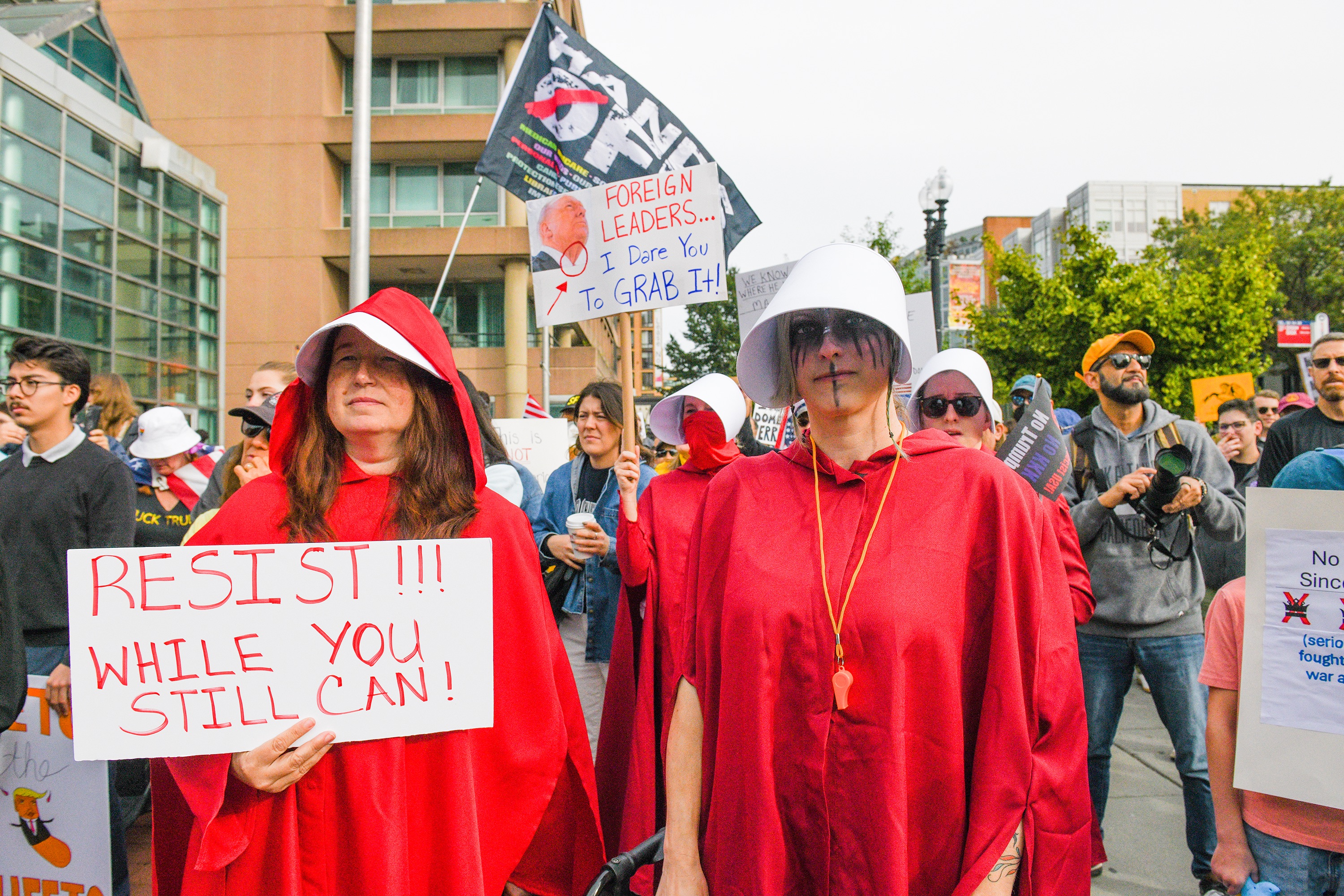
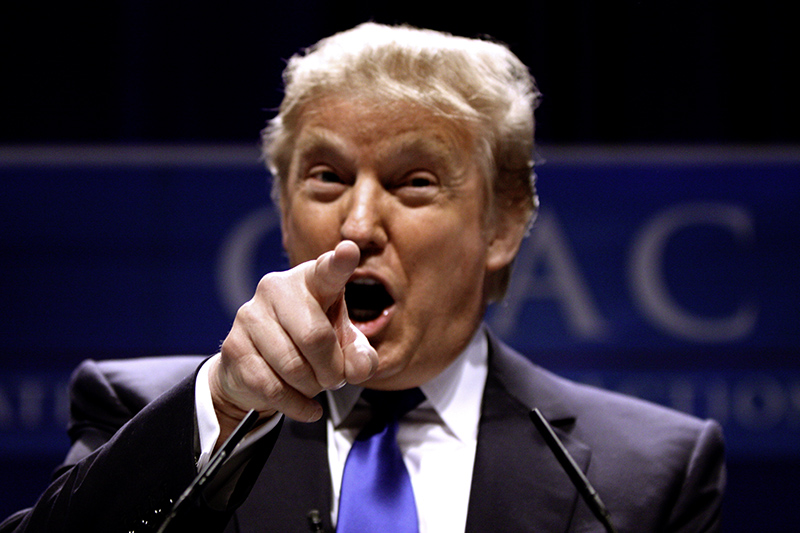
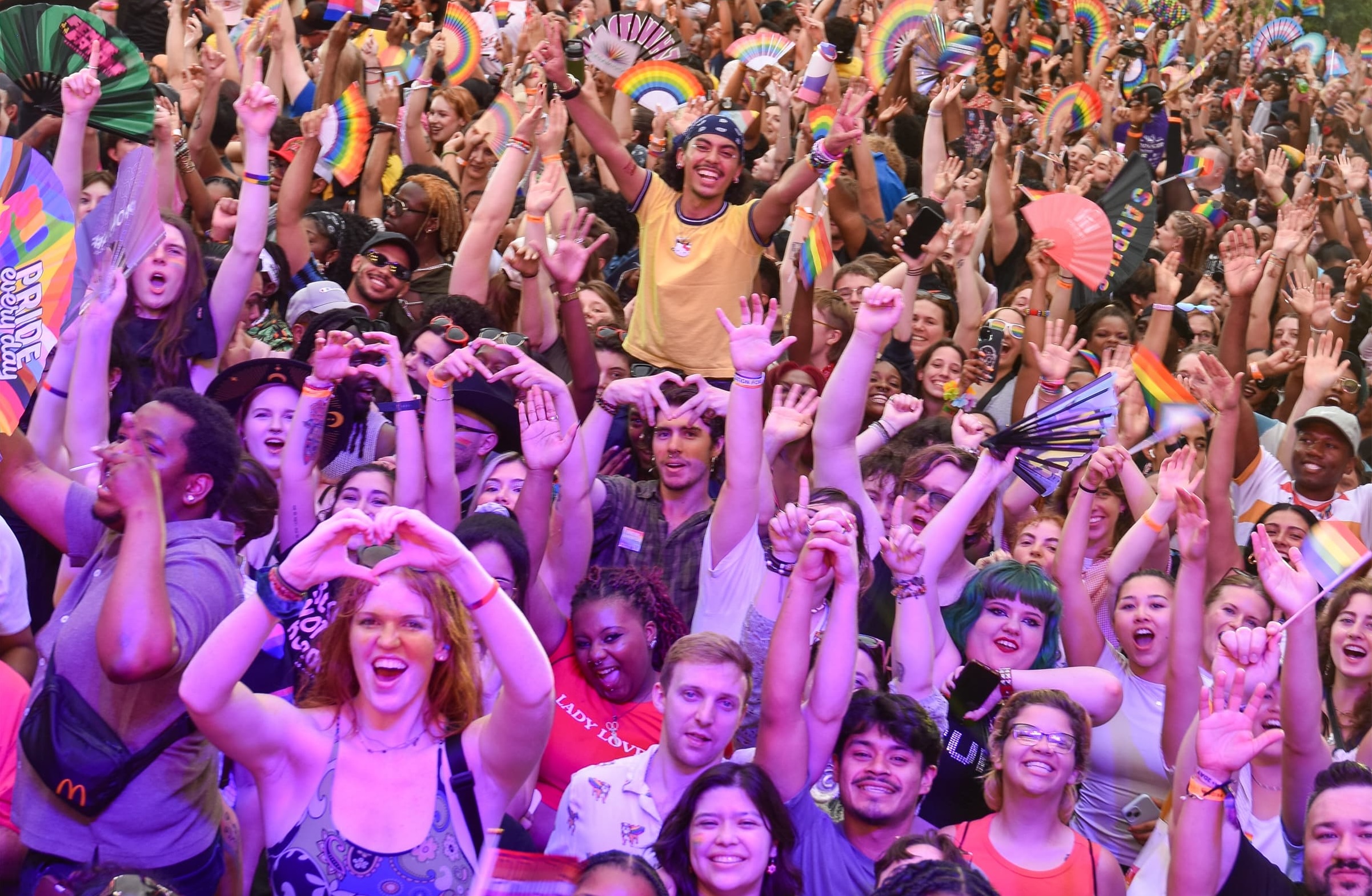













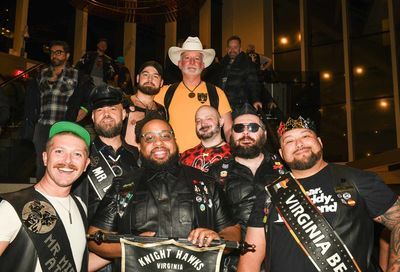
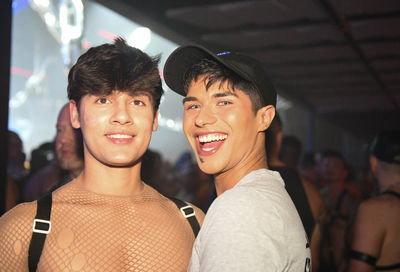
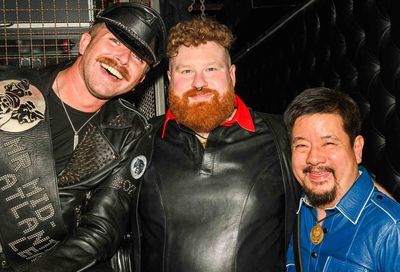
You must be logged in to post a comment.